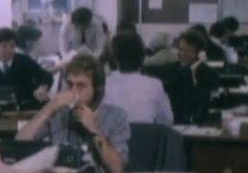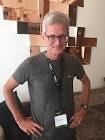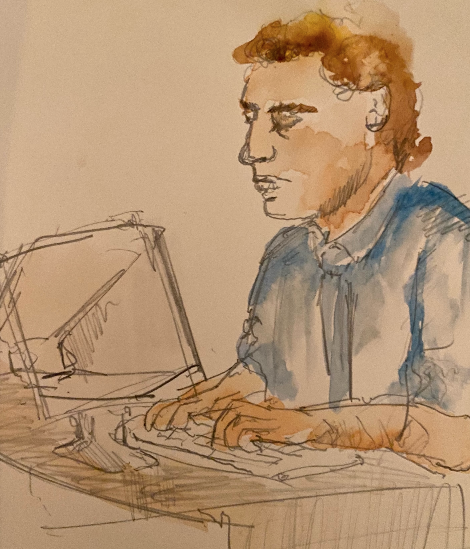- ‘Lies, damned lies etc…’ - 13th February 2026
- Missing in action - 12th February 2026
- Travel news again - 11th February 2026

During 23 years with the BBC, and a 41 year journalistic career (when he was trained to use clear and simple language, avoiding jargon), our Editor, Welshman Phil Parry, has seen incredible changes from when he started on what was then Wales’ biggest-selling paper produced in the country – particularly in relation to women.
Exposing humbug has always seemed important to me.
The right things may be said by an organisation, but when you look into the situation, the reality is rather different.

This was particularly so when it came to my own profession when I started out in 1983 – journalism.
Newspapers always said they were entirely equal – if an important story came from a man or woman it was treated EXACTLY the same, and a good reporter was a good reporter of whatever gender.
But the day to day running of the South Wales Echo (SWE) painted an alternative picture.


There were NO women at a senior level on what was then the biggest-selling paper produced in Wales.
There were NO women on the News Desk, NO women Chief Sub Editors, NO women Assistant Editors NO women Deputy Editors, and the Editor (Geoff Rich) was a man.
There was rampant sexism in the office (I hold my hands up to being part of this because it seemed ‘normal’!), and women were generally given ‘softer’ stories involving children or animals.

This horrendous situation is changing thankfully (albeit too slowly), although in other parts of the world it remains awful.
All of this has been put into context by Paul Salopek who is spending years travelling around the globe, as he traces man’s movement out of Africa about 80,000 years ago, and underlines the importance of events like International Women’s Day.
Bias against women is “one global thing we share”, says Mr Salopek.
Women wake up early to do chores, go to bed late, and men dominate public spaces, own most property as well as bully their wives.

Several times, in remote parts of Central Asia, a woman would wait for Mr Salopek on the road outside her village and tell him, weeping, of the injustices she endured.
In South Korea, where an unprecedented number of women are opting out of marriage and having children, he found the casual misogyny—the way men talked about women when they were sitting around a table with beers—“breathtaking”.

It is also breathtaking to think of the way women were treated on Cardiff’s evening newspaper when I began in journalism…
The memories of Phil’s, remarkable decades long award-winning career in journalism (when sexism was rife) as he was gripped by the rare and incurable neurological disabling condition Hereditary Spastic Paraplegia (HSP), have been released in a major book ‘A GOOD STORY’.Order the book now!
Tomorrow the second part of The Eye’s investigation into the appalling Post Office scandal where Wales takes centre stage, and we reveal that the miscarriages of justice watchdog is examining potential cases related to software problems.









